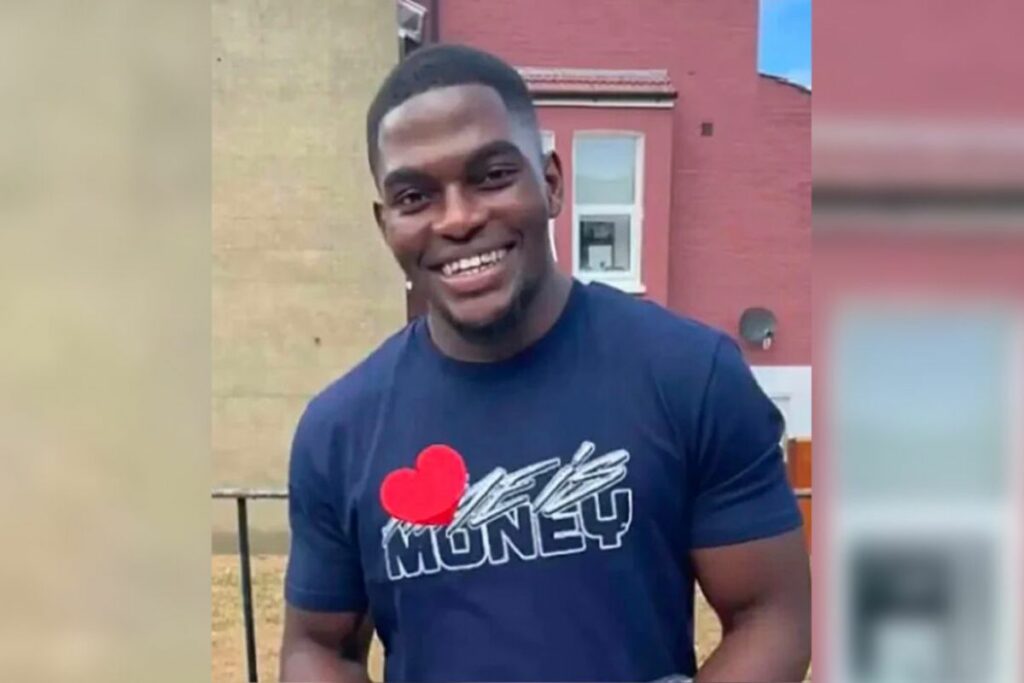On the evening of Monday, September 5, 2022, CHRIS KABA was involved in a fatal car pursuit that resulted in the loss of his life. Everything follows is what we now know about the life and death of Chris Kaba, who was expecting a child.
Who Exactly Was This Chris Kaba?
Chris Kaba, who was 24 years old at the time, was a rapper who used the stage name Mad Itch. Chris Kaba was also known as Madix. In addition to that, he was a member of the 67th Mobo-nominated drill group. During a pursuit that took place on Streatham Hill on the evening of Monday, September 5, 2022, Kaba was killed by a shot to the head.
How Did Chris Kaba Die?
Kaba was driving his black Audi on the evening he was killed when police officers attempted to make “tactical contact” with him in order to stop him. They did this by stopping him on the residential street in Kirkstall Gardens. Kaba was killed.
According to the Independent Office for Police Conduct, once his vehicle was detected by the Automatic Number Plate Recognition camera, it was speculated that he was involved in a firearms-related event. This led to the suspicion that his car was involved (IOPC). The conference provided a safe environment for individuals to learn more about Chris Kaba’s killing and to explore the collective experience of intergenerational trauma from policing black communities.
“When details first came out, the first thing that I read was that Chris was a ‘drill artist,’ a ‘rapper,’ a ‘criminal,’ but all of these things, even if they were true, don’t justify the way that he was shot and killed the way that he was,” said Bell Ribeiro-Addy, MP for the constituency where Chris Kaba was fatally shot. Chris Kaba was completely dehumanized.”
“Chris was one of two people in three months who died following contact with police in London, and over a thousand people have died since 1990 following contact with police or in police custody,” she continued. We must not lose momentum; this will be a lengthy battle, and we know there will be considerable opposition.”
Helen Lumuanganu, Chris Kaba’s mother, also spoke during the conference, expressing her anger toward the police. “After supper, Chris told me he was going to see his buddies, but he never returned.” I wonder whether this would have happened to my son if he hadn’t been black. I never want this to happen to another parent.
“I’m afraid to be in front of the cops every time I see them outside because of what they did to Chris.” I want them to respond to my questions regarding what they did to Chris. Every day, my heart breaks because I miss Chris, his voice, and his tremendous presence. He constantly addressed me as “dear mama.” He deserves to live, and I’m looking for justice for what they did to Chris.”
Chris Kaba’s father, Prosper Kaba, expressed his grief over his son’s death. “I will carry Chris’s death with me for the rest of my life.” People we believe are supposed to protect us wreak havoc on our communities. “Our towns are meant to be like a rainbow, where we all live together,” he continues, “but we witness what is occurring in America [police violence] in the UK.”
“I have quite a lot to say,” Prosper said, “but I think you can comprehend my pain, and you can understand what I’ll feel and what I’ll be suffering for the rest of my life.” Temi Mwale, Executive Director of the 4Front Project and a staunch supporter of the Chris Kaba family, stated, “The collective pain and anguish we face as a community suffering knowing how disposable black lives are in this nation, that energy needs to go somewhere.”
“Our wrath is righteous, we’re permitted to have rage, and our rage is frequently policed, but we’re allowed to be angry, sad, and feel the whole range of our emotions.” “I am enraged because this system is nasty and evil.” Children of color in the black community are influenced by this harsh policing and jail system from birth. What I know is that incarcerating a single cop will not stop policing as an institution from killing people.
“How does responsibility appear? I don’t think we can rely on a system to hold itself accountable, and the system’s broader violence, the same system that sends black teenagers on a conveyor belt into the prison system, is not going to police itself. I want our vision for justice to be broader because, as long as the cops have the means, resources, and backing, they will continue to abuse, hurt, and kill – history has shown us that they will.”
The United Families & Friends Campaign, a group of friends and families of individuals who died in the custody of prisons and police officers, held its yearly protest and rally from Trafalgar Square to 10 Downing Street on Saturday, October 29th.
Please visit our website unitedfact.com.

